Bessemer’s 2024 Fellowship Class
Meet Bessemer's fifth Fellowship class and learn their perspectives on technology, entrepreneurship, and innovation.
Now in its fifth year, the Bessemer Fellowship Program continues to empower high-achieving undergraduate students with internships at Bessemer portfolio companies and comprehensive programming and networking opportunities. For 2024, we placed seven U.S. university students at companies across fintech, supply chain, and vertical software roadmaps. Some of these companies include Papaya Payments, GlossGenius, Curri, and Recurrency.
This year's cohort engaged in professional development workshops with industry leaders, including former DoorDash executive Gokul Rajaram, Bessemer Operating Partner Jeff Epstein, and former Slack Engineering Senior Vice President Rukmini Reddy. These sessions provided invaluable insights into the tech industry, venture capital, and entrepreneurship.
Please visit our webpage for more information about Bessemer’s past Fellowship cohorts and what’s coming up next.
Perspectives on technology and innovation
The 2024 Fellows are entering the tech sector amid rapid advancements in artificial intelligence and other emerging technologies. We asked them to share their thoughts on how technology can improve society and what distinguishes Gen Z. This year’s Bessemer Fellows’ responses reflect a generation poised to drive significant societal change via startups and entrepreneurial innovation.
Angelina Lue
University of California, Los Angeles
B.S. Computer Science, B.A. Economics
Product Management Intern @ Papaya Payments
Q: What kind of technology do you hope to see easily accessible by more people within our global society?
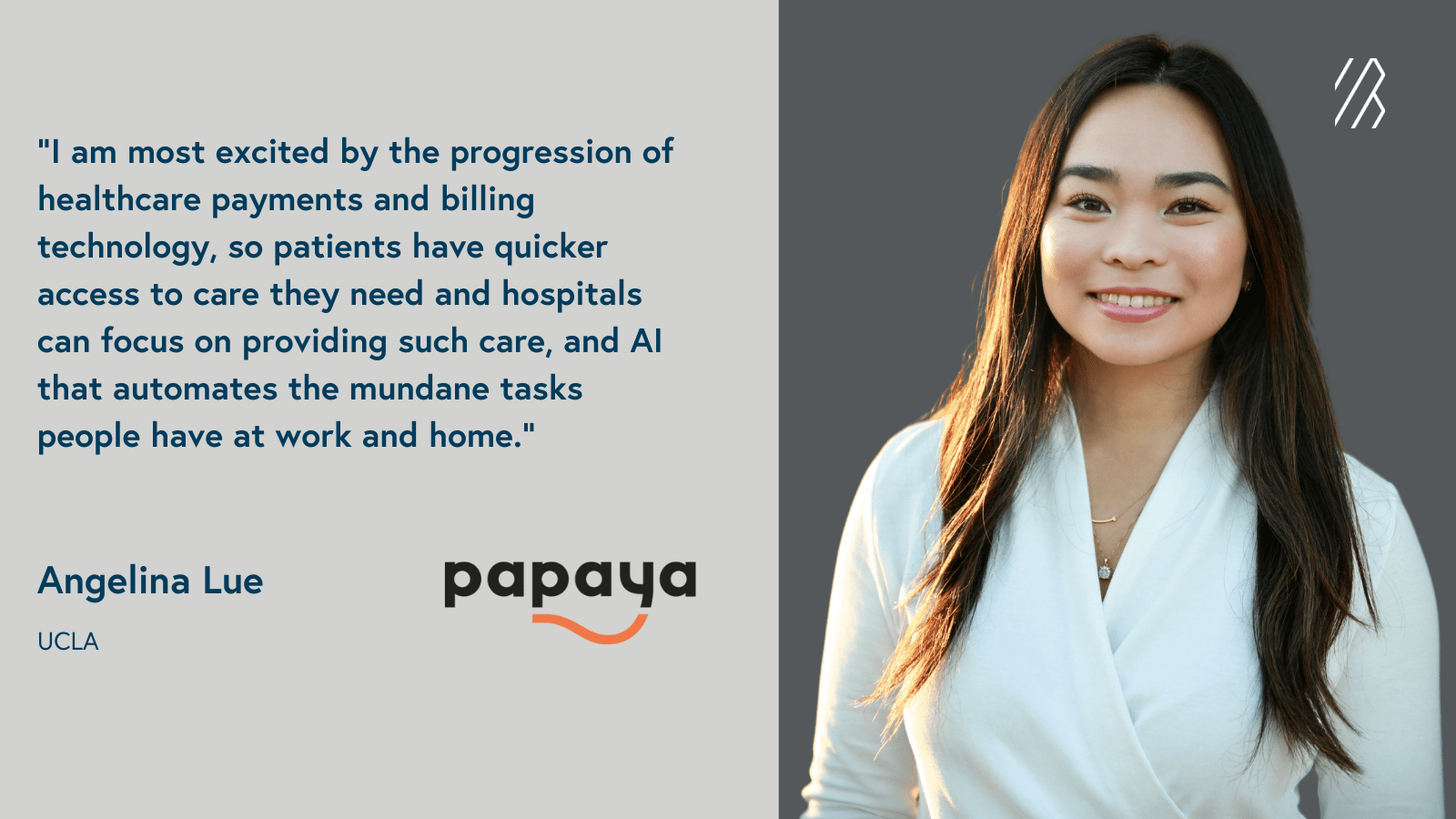
A: We are at an inflection point in human history where we finally have the technological capabilities to build anything we dream of. I am most excited by the progression of healthcare payments and billing technology, so patients have quicker access to care they need and hospitals can focus on providing such care, and AI that automates the mundane tasks people have at work and home. While automation will certainly increase efficiency, this AI revolution will also empower us to focus on the things we care about most, whether that’s solving complex problems, spending time with family, or reading a good book.
Brian Tu
University of Waterloo
Computer Science
Software Engineering Intern @ GlossGenius
Q: How do you see AI improving society?
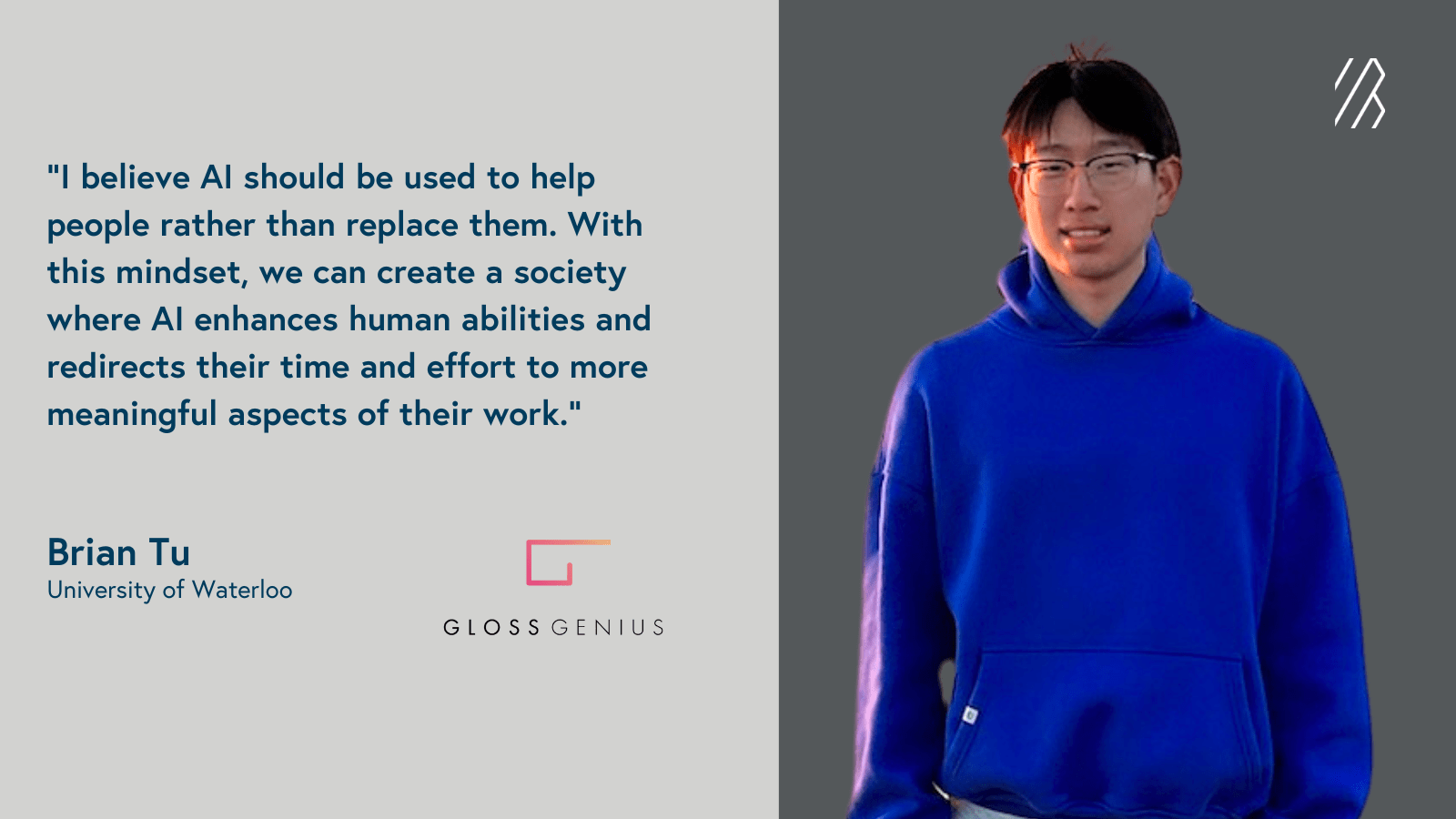
A: I believe AI should be used to help people rather than replace them. With this mindset, we can create a society where AI enhances human abilities and redirects their time and effort to more meaningful aspects of their work. For example, Twilio is leveraging AI to assist customer service representatives with repetitive tasks such as sorting inquiries and suggesting responses to customers. This allows the representatives to concentrate on more complex and personalized customer interactions. In healthcare, Abridge is using AI to transcribe and summarize medical conversations between doctors and patients, ensuring critical details aren’t overlooked and allowing doctors to focus more on patient care rather than paperwork. By fostering a more efficient and effective work environment, AI can be used as a powerful tool to improve society rather than replace it.
Devin Tykodi
University of Washington
Finance
Market Research Intern @ GigFinesse
Q: From your POV, how does GenZ work differently than other generations?
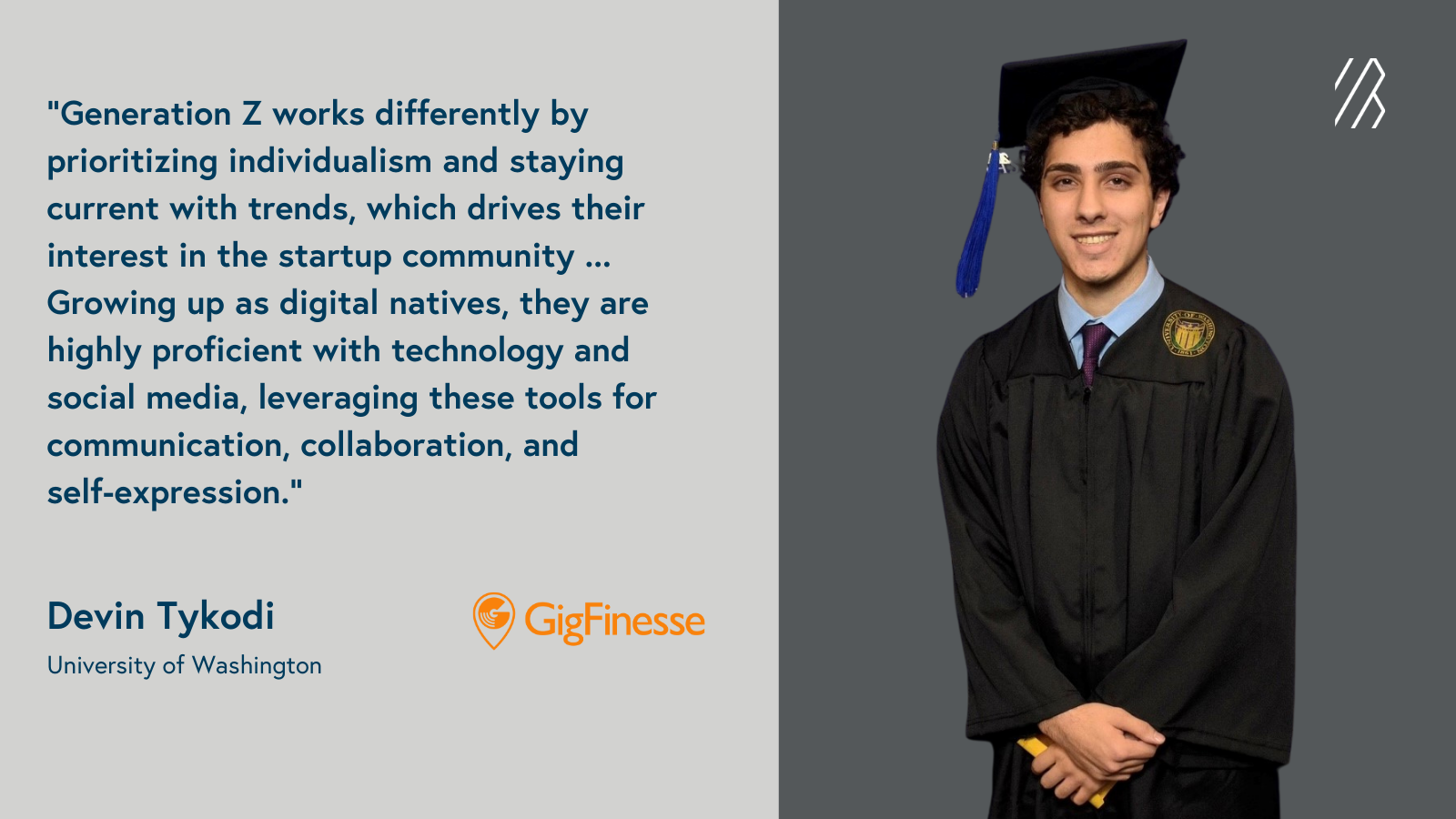
A: In my opinion, Generation Z works differently by prioritizing individualism and staying current with trends, which drives their interest in the startup community. Unlike previous generations that focused on long-term career stability and hierarchical structures, Gen Z seeks flexibility, innovation, and authenticity. Growing up as digital natives, they are highly proficient with technology and social media, leveraging these tools for communication, collaboration, and self-expression. This tech-savvy nature, combined with their desire for meaningful and scalable projects, leads many Gen Z individuals to explore startups. They value work environments that align with their personal values, prioritize work-life balance, and offer the excitement of being part of something significant and trendsetting.
Jesus Bautista
Bentley University
Information Systems and Data Analytics
Software Engineer Intern @ Curri
Q: If you had unlimited resources to pursue a “tech for good” or not-for-profit tech project, what would it be?
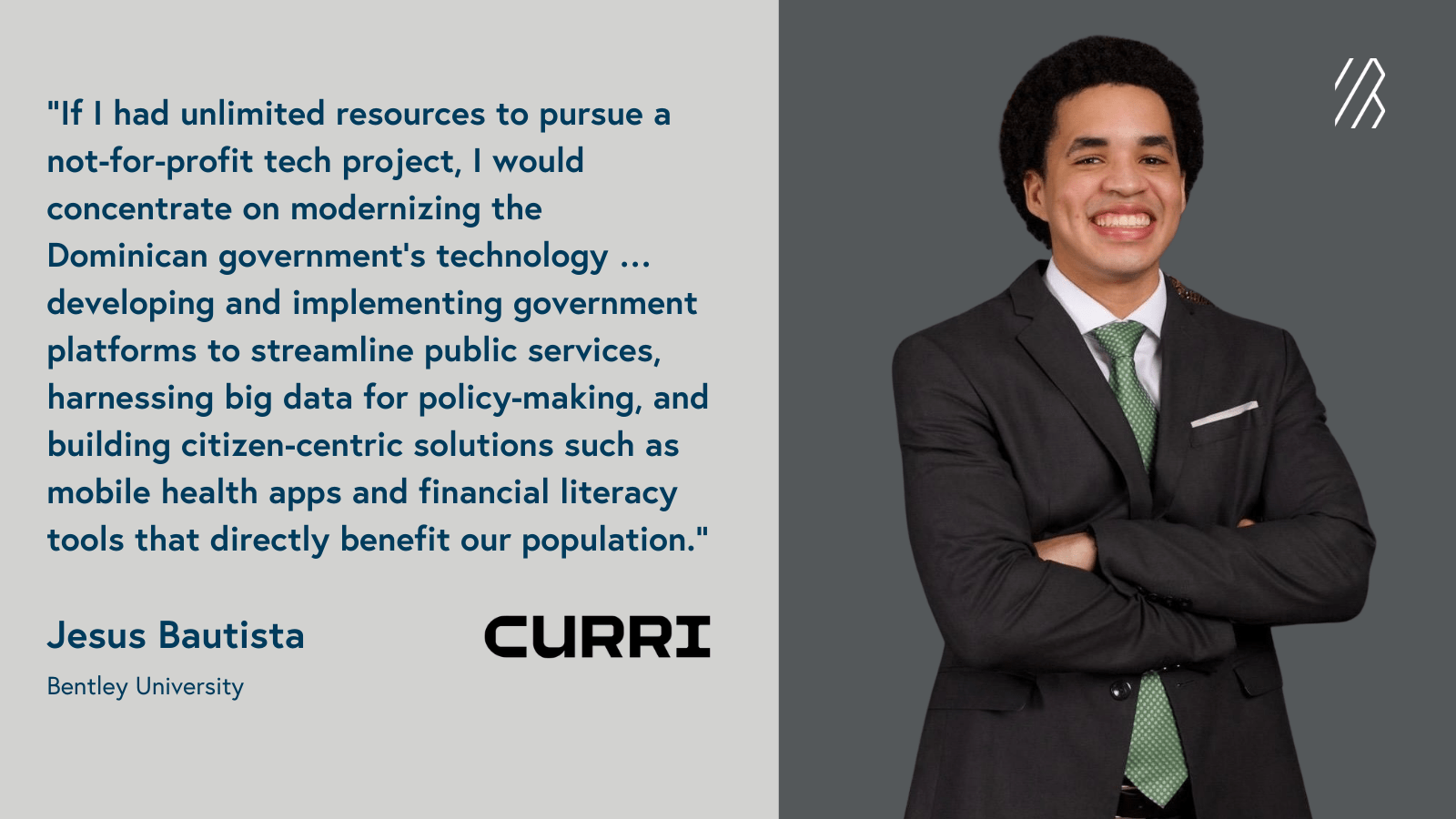
A: If I had unlimited resources to pursue a not-for-profit tech project, I would concentrate on modernizing the Dominican government's technology, especially given our lack of budget and resources. My focus would be on developing and implementing government platforms to streamline public services, harnessing big data for policy-making, and building citizen-centric solutions such as mobile health apps and financial literacy tools that directly benefit our population.
Patrick Liu
University of Pennsylvania
Computer Science
Software Engineering Intern @ Leeway
Q: What untapped industry or workflow is most ripe for innovation with AI?
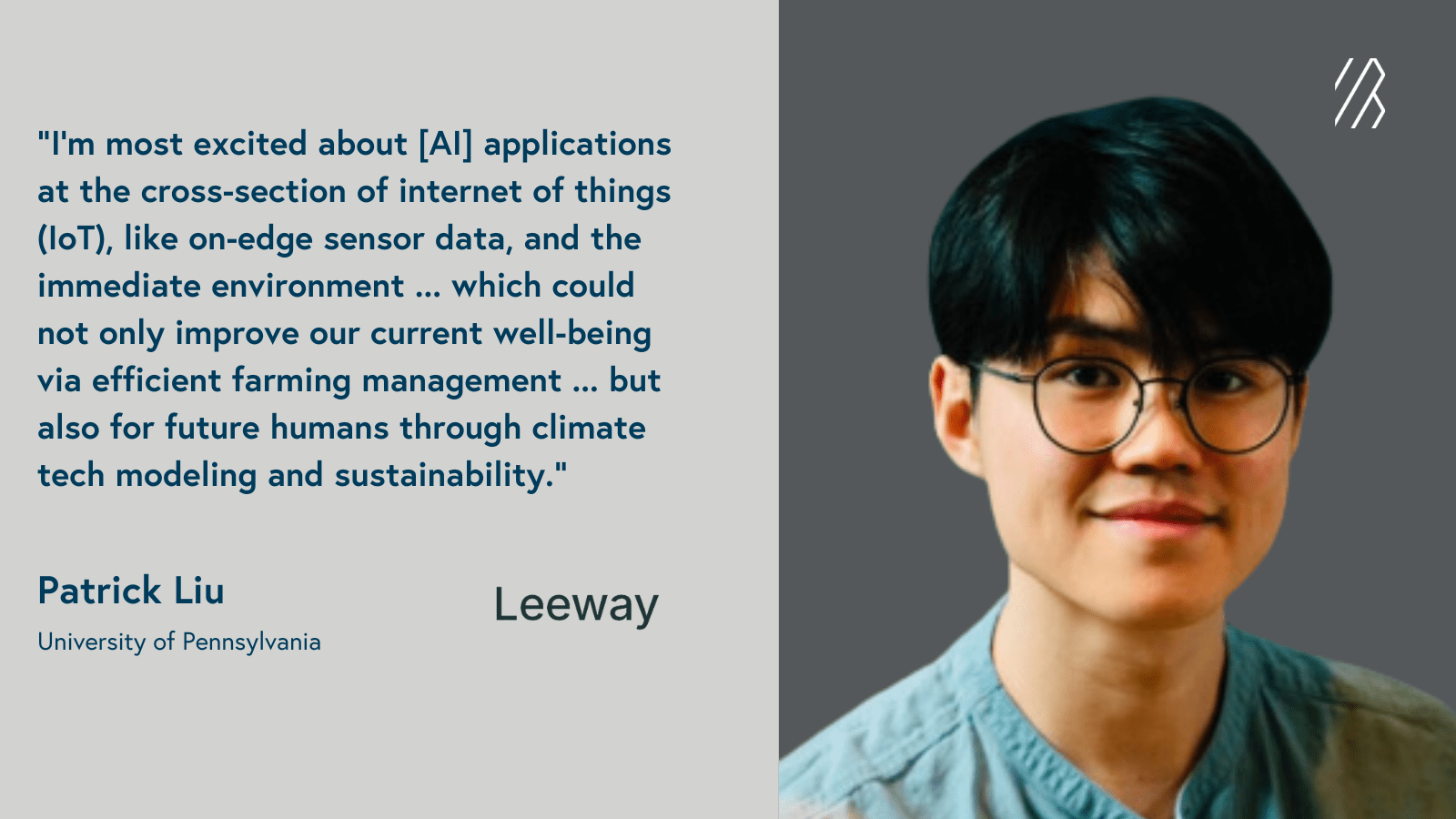
A: AI has such broad application in every possible industry, as data can be found throughout our everyday lives. I’m most excited about its applications at the cross-section of internet of things (IoT), like on-edge sensor data, and the immediate environment—a combination which could not only improve our current well-being via efficient farming management (real-time crop insights), but also for future humans through climate tech modeling and sustainability. Through it all, however, we must also be aware of AI’s personal carbon footprint on the world, and use it conservatively.
Peter Zhu
Brown University
Computer Science
Software Engineering Intern at Recurrency
Q: How do you think GenZ founders are different from other generations?
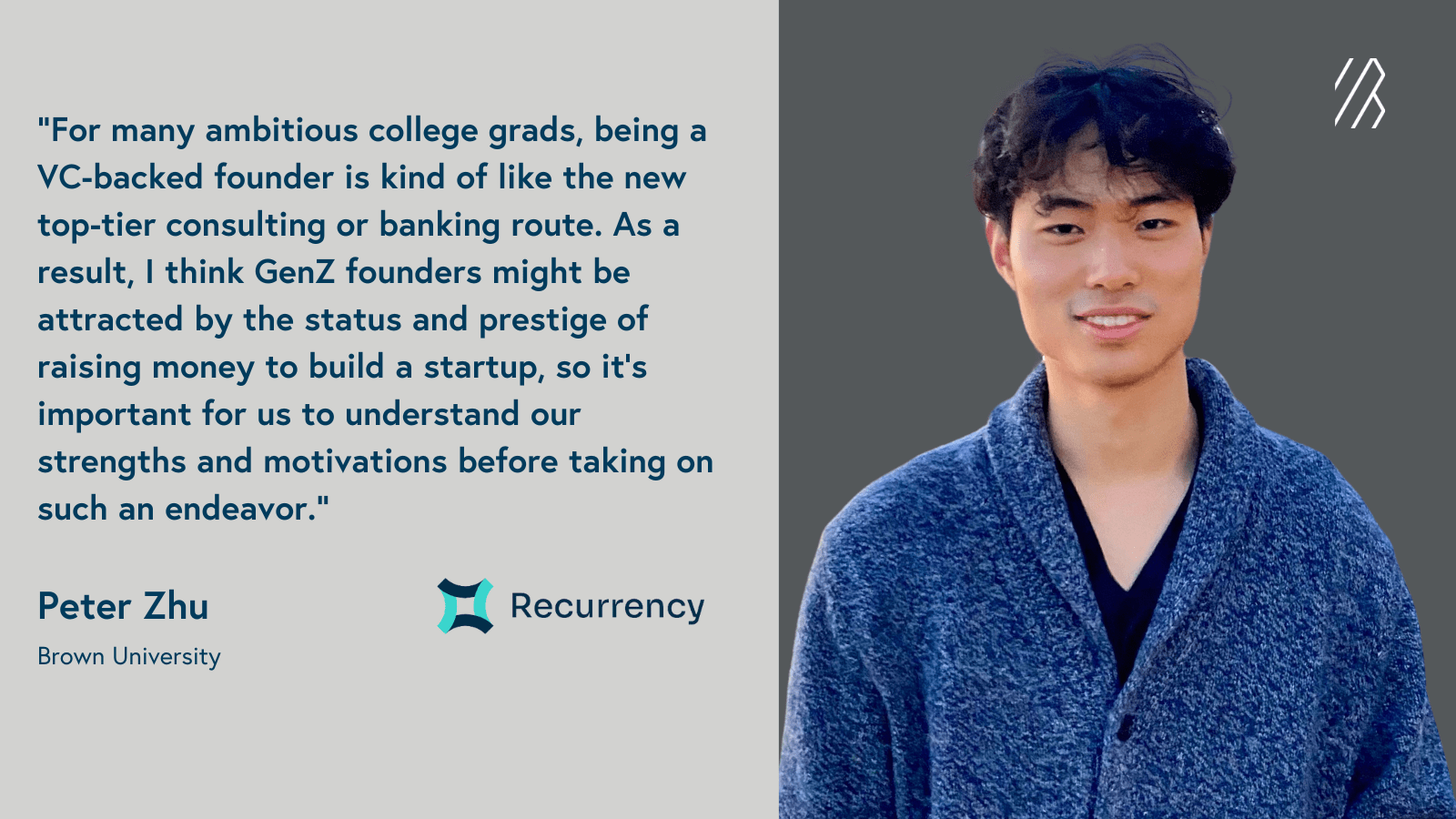
A: A few decades ago, being an entrepreneur was an extremely unconventional and risky thing to do. You generally needed to have family ties in the business, or deep expertise after years in the industry to justify striking out on your own. For new college grads, it's definitely not as glamorous to be an entrepreneur instead of working for a big bank or major corporation.
With the rapid advancements in technology in recent years, this has changed. For many ambitious college grads, being a VC-backed founder is kind of like the new top-tier consulting or banking route. As a result, I think GenZ founders might be attracted by the status and prestige of raising money to build a startup, so it's important for us to understand our strengths and motivations before taking on such an endeavor.
At the same time, the normalization of startups, especially in Silicon Valley, has really lowered the risk for founders. If you start a company and get backed by top VCs or go through a famous incubator, you'd have an easy time finding a decent paying job at a startup even if you fail. I think it's a lot less risky to start a company now compared to before, and GenZ's have this advantage.
Vraj Dirajlal
Vanderbilt University
Computer Science & History
Data Engineering Intern @ Curri
Q: How do you envision tech-enabled entrepreneurship making a more prosperous society?
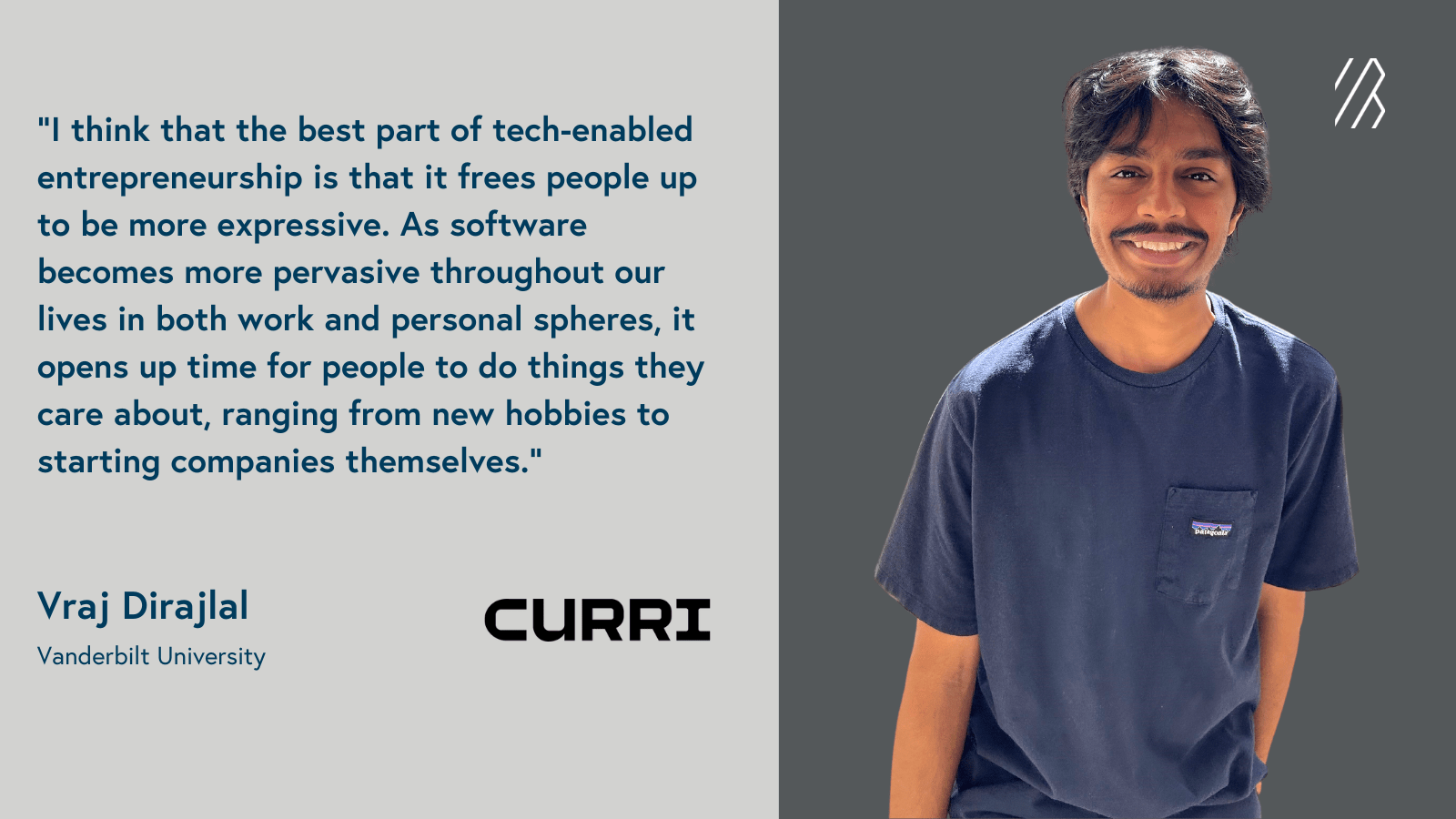
A: I think that the best part of tech-enabled entrepreneurship is that it frees people up to be more expressive. As software becomes more pervasive throughout our lives in both work and personal spheres, it opens up time for people to do things they care about, ranging from new hobbies to starting companies themselves. Tech entrepreneurship does not make every facet of our lives easier, but it does open up new avenues for people to express themselves in a whole new form.
I’m excited to see what people do with new technologies in the near future, whether that’s AI, VR, or a new technology we haven’t even heard of yet.

